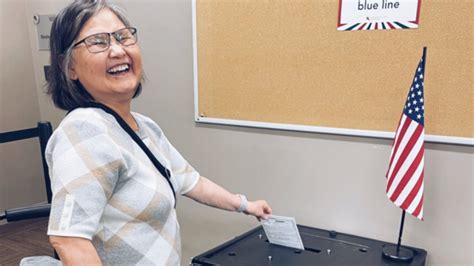
Minnesota State Representative Ilhan Omar, a Democrat, publicly acknowledged she is not a United States citizen, but maintains that her path to citizenship and subsequent election were lawful during a House floor debate Monday on election integrity and voter eligibility. The revelation came during a heated exchange concerning a proposed constitutional amendment to define who qualifies as an eligible voter in the state.
St. Paul, MN – During a contentious House debate on Monday concerning election integrity and proposed amendments to the Minnesota Constitution, State Representative Ilhan Omar, a Democrat representing District 60B, stunned colleagues by admitting that she is not a United States citizen, but maintains that her path to citizenship and subsequent election were lawful.
The admission occurred during a floor debate centered on a proposed constitutional amendment that seeks to define who is considered an eligible voter in Minnesota. The debate grew heated as representatives from both sides of the aisle presented arguments concerning voter eligibility, election security, and potential vulnerabilities within the state’s election system.
Omar’s unexpected declaration immediately reverberated through the chamber, prompting immediate reactions and raising questions about her eligibility to hold public office.
“I stand before you today to affirm my deep commitment to the democratic process and the integrity of our elections,” Omar stated during the debate. “I also want to be forthright about my status. I was not born a United States citizen, and my path to citizenship was arduous. However, I maintain that my path to citizenship was lawful, and I am proud to represent my district.”
The debate leading up to Omar’s statement was intense, with Republican lawmakers advocating for stricter voter identification requirements and a clearer definition of voter eligibility within the state constitution. Proponents of the amendment argued that these measures are necessary to prevent voter fraud and ensure the legitimacy of elections.
“We must ensure that our elections are free, fair, and secure,” argued Representative Tom Emmer, a Republican and vocal supporter of the proposed amendment. “By defining who is eligible to vote, we safeguard the integrity of our democratic process.”
Democrats, however, largely opposed the amendment, arguing that it could disenfranchise eligible voters, particularly those from marginalized communities. They also emphasized the importance of accessible voting and cautioned against measures that could suppress voter turnout.
“We must be vigilant in protecting the right to vote for all eligible citizens,” stated Representative Aisha Gomez, a Democrat. “We should be working to make voting easier, not creating barriers that disproportionately affect certain communities.”
Omar’s admission that she is not a United States citizen intensified the debate, with some Republican lawmakers questioning whether her path to citizenship met all legal requirements. They called for further investigation into her naturalization process and her eligibility to hold public office.
“Representative Omar’s admission raises serious questions about her eligibility to serve in the Minnesota House of Representatives,” stated Representative Jim Nash, a Republican. “We have a responsibility to ensure that all elected officials meet the constitutional requirements for holding office.”
Democrats, however, rallied around Omar, defending her right to serve and emphasizing her commitment to her constituents. They argued that her personal journey to citizenship should not be used to undermine her qualifications or contributions to the state legislature.
“Representative Omar is a dedicated public servant who has worked tirelessly for her constituents,” stated Representative Hodan Hassan, a Democrat. “Her personal story is a testament to the American dream, and we should celebrate her accomplishments, not question her legitimacy.”
The debate over Omar’s eligibility is expected to continue in the coming days, with both Republicans and Democrats preparing to present legal arguments and evidence to support their respective positions. The controversy has also attracted national attention, with commentators and legal experts weighing in on the potential implications of Omar’s admission.
Constitutional scholars have noted that the eligibility requirements for holding state office vary from state to state, but generally include citizenship, residency, and age requirements. The Minnesota Constitution requires that state representatives be qualified voters in the state, but does not explicitly define the term “qualified voter.”
“The key legal question will be whether Representative Omar met the requirements for becoming a qualified voter at the time she was elected,” stated Professor David Schultz, a constitutional law expert at Hamline University. “This will likely involve a close examination of her naturalization process and the relevant state laws.”
The controversy surrounding Omar’s eligibility is unfolding against a backdrop of heightened scrutiny of election integrity and voter eligibility across the country. In recent years, concerns about voter fraud and election security have become increasingly prominent in political discourse, with many states enacting new laws and regulations aimed at tightening voter identification requirements and preventing voter fraud.
Critics of these measures argue that they are often based on unsubstantiated claims of voter fraud and that they disproportionately affect minority voters and other marginalized communities. They argue that efforts to tighten voter eligibility should be balanced against the need to ensure accessible voting and protect the right to vote for all eligible citizens.
The debate over Omar’s eligibility is likely to add further fuel to this ongoing debate, with both sides using the controversy to advance their respective positions on election integrity and voter eligibility. The outcome of the debate could have significant implications for the future of election administration in Minnesota and beyond.
In the wake of Omar’s admission, several legal analysts and political commentators have weighed in on the potential implications. Some argue that her admission automatically disqualifies her from holding office, citing the constitutional requirement that elected officials meet specific eligibility criteria. Others contend that as long as she met the requirements for naturalization and voter registration at the time of her election, her current status should not be a barrier to her continued service.
The Minnesota House of Representatives is expected to convene a special committee to investigate the matter thoroughly. This committee will likely examine the details of Omar’s naturalization process, review relevant legal precedents, and hear testimony from legal experts and constitutional scholars. The findings of this investigation will play a crucial role in determining whether any formal action, such as a vote on expulsion, will be taken against her.
The potential political ramifications of this situation are considerable. Depending on the outcome, it could significantly impact the balance of power in the Minnesota House and potentially lead to a special election to fill Omar’s seat. Moreover, it is likely to galvanize both supporters and detractors of stricter voter eligibility requirements, leading to increased political polarization and potentially influencing future elections.
Omar’s revelation has also sparked broader discussions about immigration, citizenship, and the rights of naturalized citizens in the United States. Advocates for immigrant rights argue that her situation highlights the often-complex and challenging path to citizenship faced by many immigrants and that her contributions to public service should not be undermined by questions about her past status. Conversely, those who advocate for stricter immigration enforcement may view her case as an example of potential vulnerabilities in the naturalization process that need to be addressed.
The controversy surrounding Omar’s eligibility also underscores the importance of transparency and accountability in the electoral process. It highlights the need for clear and consistent rules regarding voter eligibility and for robust mechanisms to ensure that all elected officials meet the requirements for holding office. As states across the country continue to grapple with issues related to election integrity and voter access, this case is likely to serve as a focal point for debate and reform efforts.
The specific amendment under discussion aims to explicitly define “qualified voter” in the state constitution. Proponents of the amendment, primarily Republicans, argue that this is necessary to prevent voter fraud and ensure the integrity of elections. They contend that the current lack of a clear definition leaves the door open to potential abuse and manipulation.
Opponents, mainly Democrats, argue that the amendment is unnecessary and could potentially disenfranchise eligible voters, particularly those from marginalized communities. They assert that existing laws and regulations already provide sufficient safeguards against voter fraud and that the amendment could create unnecessary barriers to voting.
The proposed amendment typically includes provisions such as requiring voters to be U.S. citizens, residents of the state for a certain period, and at least 18 years old. It may also include provisions related to voter identification and proof of residency.
During the House debate, Representative Omar addressed her colleagues, stating, “My journey to citizenship was a challenging one, but I am proud to have become a naturalized citizen of this great nation. I have always been committed to upholding the Constitution and serving the people of my district with integrity and dedication.”
She emphasized that she went through the naturalization process legally and complied with all requirements. She also pointed out that she had been transparent about her immigration status throughout her political career and that her constituents had always been aware of her background.
However, critics argue that her admission raises questions about whether she met the eligibility requirements for holding public office at the time of her election. Some legal scholars have suggested that if she was not a citizen at the time of her election, her election could be challenged in court.
The potential consequences of this situation could range from a formal reprimand by the House to a legal challenge to her election results. The House could also initiate a process to determine whether she should be expelled from the chamber.
The situation has also triggered discussions about the broader implications for immigration policy and the rights of naturalized citizens. Some argue that it highlights the need for comprehensive immigration reform, while others argue that it underscores the importance of enforcing existing immigration laws.
Public reaction to Omar’s admission has been divided, with supporters rallying to her defense and critics calling for her resignation. The controversy is likely to continue to generate heated debate and scrutiny in the coming days and weeks.
Political Fallout and Future Steps
The immediate aftermath of Omar’s admission has been characterized by intense political maneuvering and speculation. The Republican Party has seized on the issue, calling for a thorough investigation into her eligibility to hold office. They argue that if she was not a citizen at the time of her election, her victory should be invalidated.
The Democratic Party, on the other hand, has largely defended Omar, emphasizing her commitment to her constituents and her contributions to the state legislature. They argue that her naturalization process was legal and that she has been a valuable asset to the House.
The Minnesota House of Representatives is expected to form a special committee to investigate the matter. This committee will be responsible for gathering evidence, interviewing witnesses, and making recommendations to the full House. The committee’s findings could have significant implications for Omar’s future in the legislature.
In addition to the House investigation, legal challenges to Omar’s election are also possible. If a court finds that she was not eligible to hold office at the time of her election, her victory could be overturned, and a special election could be called.
The controversy surrounding Omar’s eligibility is likely to have a significant impact on the political landscape in Minnesota. It could galvanize voters on both sides of the issue and influence future elections. It could also lead to changes in state election laws and regulations.
Broader Implications for Immigration and Citizenship
Omar’s situation has also sparked broader discussions about immigration and citizenship in the United States. Some argue that her case highlights the challenges and complexities faced by immigrants seeking to become citizens. Others argue that it underscores the importance of enforcing existing immigration laws and ensuring that all elected officials meet the eligibility requirements for holding office.
The debate over immigration and citizenship is likely to continue to be a major issue in American politics in the years to come. As the country becomes more diverse, it is important to have a thoughtful and informed discussion about how to ensure that all residents have the opportunity to participate fully in the democratic process.
Reactions from Advocacy Groups
Immigration advocacy groups have expressed concern that Omar’s situation could be used to fuel anti-immigrant sentiment and undermine the rights of naturalized citizens. They argue that it is important to remember that naturalized citizens have the same rights and responsibilities as native-born citizens and that they should not be subject to discrimination or prejudice.
On the other hand, groups that advocate for stricter immigration enforcement have argued that Omar’s case highlights the need for greater scrutiny of the naturalization process. They argue that it is important to ensure that all applicants meet the eligibility requirements for citizenship and that those who do not should be denied citizenship.
The debate over immigration and citizenship is complex and multifaceted. It is important to approach this issue with sensitivity and respect for all points of view.
Historical Context
The controversy surrounding Omar’s eligibility also has historical context. Throughout American history, there have been debates about the eligibility of elected officials, particularly those who are naturalized citizens.
In the early days of the republic, there were concerns that naturalized citizens might not be fully committed to American values and that they might be more loyal to their countries of origin. These concerns led to restrictions on the eligibility of naturalized citizens to hold certain offices, such as the presidency.
Over time, these restrictions have been gradually removed, but the debate over the eligibility of naturalized citizens has continued. Omar’s situation is just the latest chapter in this ongoing story.
The Role of Social Media
Social media has played a significant role in the controversy surrounding Omar’s eligibility. News of her admission spread quickly on social media, and the issue has been the subject of countless tweets, posts, and comments.
Social media has also been used to spread misinformation and disinformation about Omar’s situation. Some users have falsely claimed that she is not a citizen or that she obtained her citizenship illegally.
It is important to be critical of information that is shared on social media and to rely on credible news sources for accurate information.
The Importance of Due Process
Regardless of one’s views on Omar’s situation, it is important to remember that she is entitled to due process. She has the right to a fair hearing and the right to present evidence in her defense.
It is also important to avoid rushing to judgment or making assumptions about her guilt or innocence. The legal process should be allowed to run its course, and a final determination should be made based on the evidence presented.
Conclusion
The controversy surrounding Minnesota State Representative Ilhan Omar’s admission that she is not a United States citizen is a complex and multifaceted issue with significant political, legal, and social implications. The outcome of this controversy will have a lasting impact on the political landscape in Minnesota and beyond. It will also shape the ongoing debate over immigration, citizenship, and the rights of naturalized citizens in the United States.
It is important to approach this issue with sensitivity, respect, and a commitment to due process. The legal process should be allowed to run its course, and a final determination should be made based on the evidence presented.
Frequently Asked Questions (FAQ)
1. What exactly did Representative Omar admit during the House debate?
Representative Omar admitted that she is not a United States citizen but maintains that her path to citizenship and subsequent election were lawful.
2. Why is Omar’s citizenship status being questioned now?
Her citizenship status is being questioned in the context of a House debate on a proposed constitutional amendment to define who qualifies as an eligible voter in Minnesota. Some lawmakers have raised concerns about her eligibility to hold office given her admission.
3. What are the potential legal consequences for Omar?
The potential legal consequences could range from a formal reprimand by the House to a legal challenge to her election results. The House could also initiate a process to determine whether she should be expelled from the chamber. A legal challenge could potentially lead to her seat being vacated and a special election being called.
4. How does this situation affect the proposed constitutional amendment on voter eligibility?
Omar’s situation has amplified the debate surrounding the proposed constitutional amendment, with Republicans using her case to argue for stricter voter eligibility requirements and Democrats defending her right to serve and cautioning against measures that could disenfranchise eligible voters.
5. What is the next step in addressing Omar’s eligibility to hold office?
The Minnesota House of Representatives is expected to convene a special committee to investigate the matter thoroughly. This committee will examine the details of Omar’s naturalization process, review relevant legal precedents, and hear testimony from legal experts and constitutional scholars.
Detailed Analysis and Background
The case of Minnesota State Representative Ilhan Omar has brought to the forefront several critical issues surrounding citizenship, voter eligibility, and the qualifications for holding public office. Understanding the nuances of these issues requires a detailed analysis of the legal framework, political context, and historical precedents.
Legal Framework and Eligibility Requirements
The eligibility requirements for holding state office in the United States are generally governed by state constitutions and statutes. These requirements typically include citizenship, residency, age, and, in some cases, specific qualifications such as being a registered voter.
In Minnesota, the state constitution stipulates that state representatives must be “qualified voters” in the state. However, the constitution does not explicitly define what constitutes a “qualified voter.” This ambiguity has created a legal gray area that has become central to the debate surrounding Omar’s eligibility.
To be considered a “qualified voter” in Minnesota, individuals generally must be:
- A United States citizen.
- At least 18 years old.
- A resident of Minnesota for at least 20 days preceding the election.
- Registered to vote.
The core issue in Omar’s case is whether she met these requirements at the time of her election. If she was not a citizen at the time of her election, her eligibility to hold office could be challenged in court.
Naturalization Process and Citizenship
The naturalization process in the United States is governed by federal law. To become a naturalized citizen, an individual must meet certain requirements, including:
- Having resided continuously as a lawful permanent resident in the United States for a specified period (typically five years, or three years if married to a U.S. citizen).
- Demonstrating good moral character.
- Passing English and civics tests.
- Taking an oath of allegiance to the United States.
The naturalization process can be complex and time-consuming, and it requires applicants to provide extensive documentation and undergo thorough background checks. Any discrepancies or issues in the naturalization process could potentially lead to questions about the validity of an individual’s citizenship.
Political Context and Motivations
The controversy surrounding Omar’s eligibility is unfolding against a backdrop of heightened political polarization and scrutiny of election integrity. In recent years, concerns about voter fraud and election security have become increasingly prominent in political discourse, with many states enacting new laws and regulations aimed at tightening voter identification requirements and preventing voter fraud.
Republicans have been particularly vocal in their concerns about election integrity, arguing that stricter voter eligibility requirements are necessary to safeguard the democratic process. They have often cited unsubstantiated claims of widespread voter fraud to justify these measures.
Democrats, on the other hand, have largely opposed these measures, arguing that they could disenfranchise eligible voters, particularly those from marginalized communities. They have emphasized the importance of accessible voting and cautioned against measures that could suppress voter turnout.
The debate over Omar’s eligibility is likely to be influenced by these broader political dynamics, with Republicans using her case to advance their agenda on election integrity and Democrats defending her right to serve and cautioning against measures that could disproportionately affect minority voters.
Historical Precedents and Similar Cases
Throughout American history, there have been several instances where the eligibility of elected officials has been questioned due to issues related to citizenship, residency, or other qualifications.
In some cases, these challenges have resulted in elected officials being removed from office or having their election results overturned. In other cases, the challenges have been unsuccessful, and the elected officials have been allowed to continue serving.
One notable example is the case of Representative Loretta Sanchez, who faced questions about her residency when she first ran for Congress in California. Sanchez was accused of not meeting the residency requirements for the district she was seeking to represent. However, after an investigation, the House Ethics Committee concluded that she met the residency requirements, and she was allowed to continue serving.
These historical precedents suggest that the outcome of Omar’s case will depend on a careful examination of the facts and the relevant legal standards. The Minnesota House of Representatives and the courts will need to weigh the evidence and arguments presented by both sides before making a final determination.
Potential Consequences and Impact
The controversy surrounding Omar’s eligibility could have several significant consequences:
- Legal Challenges: Omar’s election could be challenged in court, potentially leading to her seat being vacated and a special election being called.
- House Investigation: The Minnesota House of Representatives could initiate an investigation into her eligibility, which could result in a formal reprimand, expulsion, or other disciplinary actions.
- Political Fallout: The controversy could galvanize voters on both sides of the issue, potentially influencing future elections and leading to increased political polarization.
- Immigration Debate: The situation could reignite the debate over immigration and citizenship in the United States, with advocates for stricter immigration enforcement using her case to argue for greater scrutiny of the naturalization process.
- Public Perception: The controversy could damage Omar’s reputation and credibility, potentially affecting her ability to serve effectively as a state representative.
The ultimate impact of this controversy will depend on the decisions made by the Minnesota House of Representatives, the courts, and the voters. It is likely to remain a major issue in Minnesota politics for the foreseeable future.
The Role of Media and Public Opinion
The media has played a significant role in shaping public opinion about Omar’s eligibility. News outlets have reported extensively on the controversy, and social media has been used to spread information and disinformation about her situation.
Public opinion about Omar’s eligibility is likely to be divided, with supporters rallying to her defense and critics calling for her resignation. The media coverage and social media activity surrounding the issue could further polarize public opinion and make it more difficult to reach a consensus.
It is important for individuals to be critical of the information they encounter in the media and on social media and to rely on credible news sources for accurate information. It is also important to avoid rushing to judgment or making assumptions about Omar’s guilt or innocence.
Ethical Considerations
The controversy surrounding Omar’s eligibility raises several ethical considerations:
- Transparency: Did Omar have a responsibility to disclose her citizenship status to the public before running for office?
- Honesty: Did Omar provide accurate information about her citizenship status on official documents and forms?
- Integrity: Did Omar act with integrity in her dealings with the election authorities and the public?
- Fairness: Is it fair to question Omar’s eligibility to hold office based on her citizenship status, given that she has become a naturalized citizen?
- Due Process: Is Omar being afforded due process in the investigation and any legal proceedings related to her eligibility?
These ethical considerations are important to keep in mind as the controversy unfolds. It is important to ensure that Omar is treated fairly and that the legal process is followed appropriately.
Conclusion and Future Outlook
The controversy surrounding Minnesota State Representative Ilhan Omar’s admission that she is not a United States citizen is a complex and multifaceted issue with significant political, legal, ethical, and social implications.
The outcome of this controversy will have a lasting impact on the political landscape in Minnesota and beyond. It will also shape the ongoing debate over immigration, citizenship, and the rights of naturalized citizens in the United States.
It is important to approach this issue with sensitivity, respect, and a commitment to due process. The legal process should be allowed to run its course, and a final determination should be made based on the evidence presented. The investigation by the Minnesota House of Representatives will be crucial in determining the next steps and ensuring that all relevant information is considered. Only then can a fair and just resolution be reached that upholds the principles of democracy and the rule of law.









